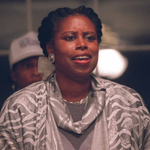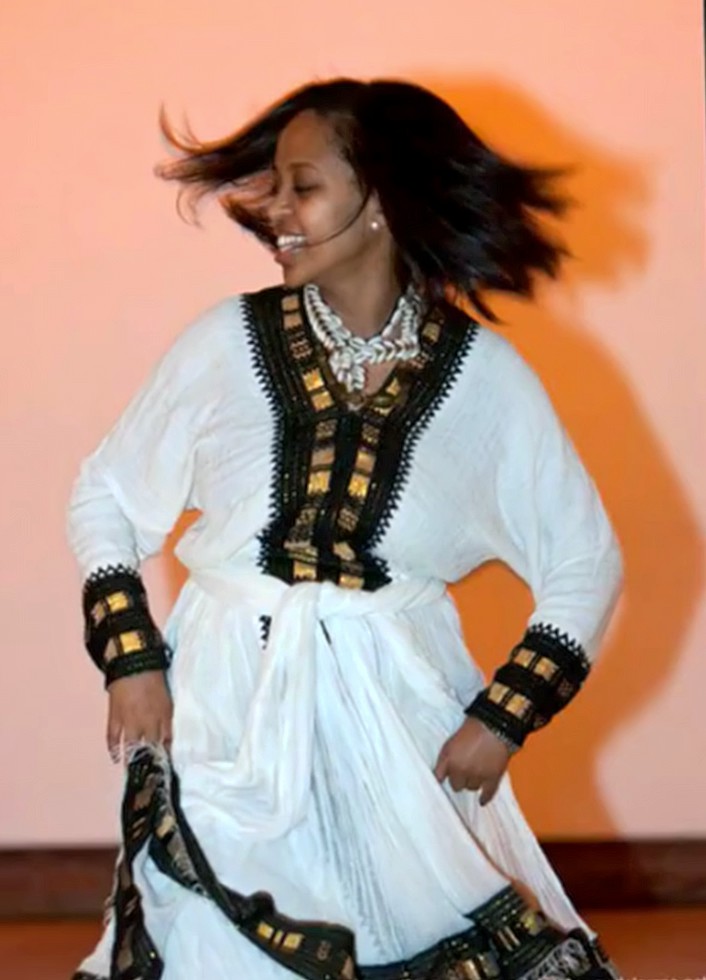Mahmoud Ahmed: the Humble King of Ethiopian Musika
Written by Teodrose Fikre, May 11, 2017, 0 Comments
Check out the write up below the Ghion Cast video. Trust me, what I write is a lot more meaningful and heart felt as I reflect on Mahmoud’s meaning for all of us and his place in the list of all time greats.
The same way sports enthusiasts have vigorous debates about the top basketball players of all time, we Ethiopians have intense debates when it comes to the list of Ethiopian musical legends. Except the debates about the musical greats is a tad more heated—which is like saying a mixture of wasabi and sinafich is a tad bit warm. Although the deliberations can go on forever, the same way a basketball fan will get instantly dismissed if Michael Jordan is not listed in the top echelon of all time greats, anyone who does not list Mahmoud Ahmed in the top three of all time greats is automatically discredited when it comes to Ethiopian music.
For me, the list is actually shorter than three. There is Mahmoud Ahmed, Tilahun Gessesee and then everyone else. This is not to diminish other musical stars, anyone who knows me knows full well how much I revere the music of Kuku Sebesebe and Muluken Melese. But none in the pantheon of Ethiopian musical greats comes close to the breadth and depth of the two kings of Ethiopian music. In all honesty, it doesn’t take much prodding for me to admit that the one true king of Ethiopian music is Mahmoud Ahmed. To use a sports analogy, Mahmoud is a seven tool phenom. Voice, check. Variety, check. Performance, check. Danceability, check. Range, check. Longevity, check. Humility, check and check. I will circle back to the last criteria in a bit. But first, let me discuss why I am writing this article.
Yesterday was a big day for the Ethiopian community. For the first time in the history of our music, an Ethiopian artist, Teddy Afro, topped the Billboard world music list. There is a special significance that I place on this accomplishment; it’s proof that there is a vast demand for our culture in the global marketplace if we are enterprising and innovative enough to reach out to a broader universe. Teddy Afro shattered all expectations because he combined smart marketing with an amazing product. After all, it only takes but one taste of our food, one sampling of our music and one insight into our heritage for those unfamiliar with Ethiopian culture to fall in love with it. The ramifications are many; when enough people tune in and support our culture, Ethiopia could transform into the Japan of Africa where the wealth is shared by all instead of opulence experienced by few.
As much as I respect and admire Teddy Afro and his courage to push the boundaries when it comes to discussing our history and examining our society through his music, I’m sure that Teddy Afro would give deference to Mahmoud for Teddy Afro would not be possible had it not been for the hard road that Mahmoud paved before him. I discussed this in the Tikus Teddy article (link), but to reiterate, it was not always a bed of roses and tulips to be a singer in Ethiopia only a generation ago. In a time where Ethiopian singers used to be dismissed as azmaris and to sing professionally was considered a lesser pursuit, few could have imagined that one day singers would revolutionize our culture by transforming our music.
Mahmoud climbed the ranks of unknown to the king of Ethiopian music at the height of contempt musicians used to be treated to not too long ago. It took the preservation of Job and the dogged determination of Abebe Bekele for a singer to achieve stardom during Mahmoud’s ascent. God blessed Mahmoud with the preservation and determination of Adwa jegnoch (heroes). At 75, Mahmoud can outlast musicians on the stage who are half his age. The times I have seen Mahmoud live, I was astounded at the level of energy and exertion he puts into his music. Mahmoud doesn’t just sing, he puts on a performance in ways I have never seen.
Yet in all candor, what awes me the most about Mahmoud is not his talent–though he is blessed with a gift to sing that is rarer than tire kitfo (steak tartare). It is his humility and the way he treats his audience that touches my heart. The first time I met Mahmoud was in 2008 when I was running around trying to organize the Ethiopian community during the election. When I saw Mahmoud talking outside of Skyline Restaurant in Alexandria, VA, I felt as though I just ran into Michael Jackson. There stood the man who was always one of my few connections to my first love and my birthplace Ethiopia. I wanted to approach and say hello but I was profoundly intimidated–how does one approach a king of Ethiopian music!
I finally mustered up the courage to say “tadias” and immediately Mahmoud stopped talking to his companion and focused all attention to me to say hello. His words still ring in my mind to this day, he turned and said “selam yene geta”, which is a term of endearment and honorific that is not bandied about to random strangers. Whatever nervous energy I had was instantly washed away and replaced with a warmth that I had not felt in my heart since my father passed. The way that Mahmoud spoke to me was the same way a father talks to a son; for Mahmoud to impart that level of kindness and embrace someone he never met and someone who was unknown blew my mind.
The more I got to know Mahmoud, the more I realize that he does this with everyone. In an age where stars are pampered and disconnected from their fans, Mahmoud refuses to let a wall come up between himself and his audience. This is why he drains himself on stage, he sings and expands so much of himself on stage in order to give his audience a show they will remember. A king is not a king who does not know how to serve; Mahmoud is precisely a king of Ethiopian music because he is serving us with his gifts and does so with a humbleness befitting of King Solomon– astounding given his level of fame and stature. But in hindsight, it is not uprising because Mahmoud climbed the ranks from hardship to abundance. Not only did he have to toil through anonymity and had to endure the disregard musicians used to get on a regular basis, Mahmoud grew up mired in privation. He spent time in his youth shinning shoes and working as a handyman.
One day, hard work met good luck as he was given a chance to perform in Haile Selassie’s Imperial Bodyguard Band. We get few chances in life to wrest destiny from randomness and make something of ourselves. Mahmoud maximized his one chance as his voice infected the room with melodic reverberations. One chance became a regular appearance; from the Arizona club he rose like the sun to the height of the Ethiopian music scene. Along the way, Mahmoud reinvented the way Ethiopians consumed music. He–along with Tilahun and Mulatu Astatke–moved away from the traditional ways Ethiopian music was produced and started to incorporate electric instruments and soundboards that gave a distinctive sound to our music.
Mahmoud also started to incorporate jazz and soul into his music. This is what makes Mahmoud such a musical genius; he is able to seamlessly meld not only a litany of dialects and inflections from Ethiopia’s diverse pool of ethnicities, he is able to go outside of Ethiopian music as well and incorporate the flavors of the world into our music. Way before Teddy Afro started infusing reggae and soulful sounds into his music, Mahmoud was doing it first. Mahmoud Ahmed set the standard when he garnered cross-over appeal; the level of adoration and fame that Mahmoud has earned in countries like France, England and Japan nears almost cult like status. This is what happens when people who don’t know Ethiopia beyond media memes and caricatures get a taste of the mitmita (hot pepper) that is our culture.
So as I acknowledge the talent that is Teddy Afro and salute him for the amazing feat, I first and foremost thank Mahmoud Ahmed. Mahmoud’s songs and his melodic voice transport me back to the time when I was six years old, a time where I was trying my hardest to learn guraginya dance as I listened to Mahmoud’s “ashkaru” (link). This is why we take our music so seriously as Ethiopians; a lot of us left our homes not by choice but by compulsion. Where we miss our once homes, it is music that fills the empty space. Mahmoud overflows the vacuums we occasionally feel in our hearts with his prodigious voice. Through it all, Mahmoud has maintained his humility and treats all of us like family as he sings. Breathtaking talent and dazzling grace–that is what makes Mahmoud the king of Ethiopian music. #MahmoudHumbleMusikaKing
If you appreciated this write up about the king of Ethiopian music Mahmoud Ahmed, share this article on social media and use #MahmoudHumbleMusikaKing
Let me pay a tribute to a prince of Ethiopian music by the name of Teddy Afro who is a legend in his own time as he dedicates a song to THE King of Ethiopia Atse Tewodros II featuring an Ethiopian nigist (queen) KinetBeth (link) doing eskista to Teddy Afro’s music.
A special shout out to Selam Seyoum (above), a ROCK in the Ethiopian music scene in his own right who uses the guitar the same way that David used five smooth stones. A rare talent, a virtuoso guitarist. Click HERE or click on the picture above to see Selam, to see peace::
Teodrose Fikre
Teodrose was born in Ethiopia the same year Emperor Haile Selassie was deposed by the communist Derg junta. The great grandson five generations removed of Atse (emperor) Tewodros Kassa II, the greatest king of Ethiopia, Teodrose is clearly influenced by the history and his connection to Ethiopia. Through his experiences growing up as first generation refugee in America, Teodrose writes poignantly about the universal experiences of joys, pains and a hope for a better tomorrow that binds all of humanity.
Teodrose has written extensively about the intersection of politics, economic policies, identity, and history. He is the author of "Serendipity's Trace" and newly released "Soul to Soil", two works that inspect the ways we are dissected as a people and shows how we can overcome injustice through the inclusive vision of togetherness.
Latest posts by Teodrose Fikre (see all)
- Blessed Are The Peacekeepers - May 15, 2017
- They Planted a Demonic Pentagram In the Heart of a Biblical Nation - May 14, 2017
- The Absurdity of Saying “White Privilege” - May 14, 2017










Leave a Reply
Be the First to Comment!